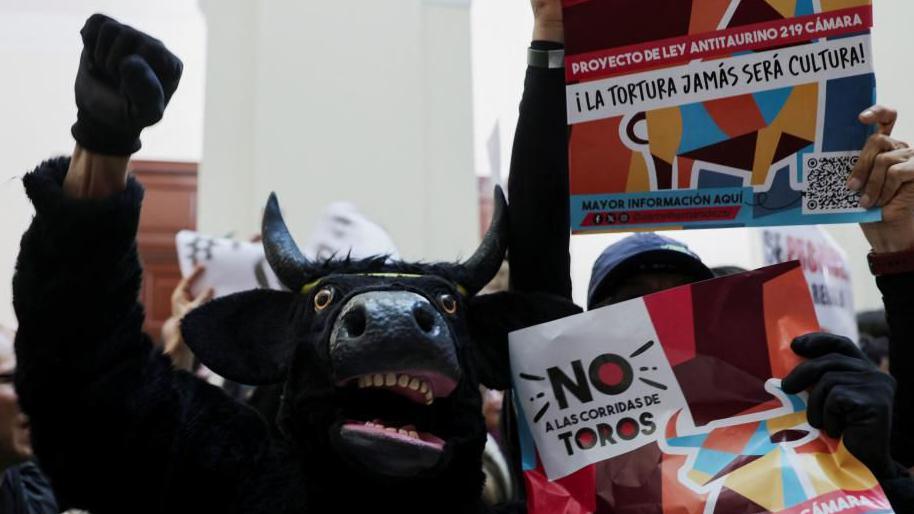Colombian Congress votes to ban bullfighting

Animal rights activists have long campaigned against bullfighting
- Published
Colombia's Congress has passed a bill which will ban bullfighting across the Andean country from 2027.
The ban is the culmination of a vocal campaign by animal rights activists, who have long argued the practice is cruel.
Bullfighting was introduced in Colombia by the Spanish during colonial times and became very popular, drawing thousands of spectators to large bullrings in cities such as Bogot谩, Medell铆n and Manizales.
The bill still needs to be signed by the president, Gustavo Petro, but as he has backed the ban, this is considered to be a formality.
The president welcomed its approval by Congress, writing on X that "those who enjoy the death of animals will end up enjoying the death of human beings, just as those who burn books, end up burning human beings".
Supporters of bullfighting had protested against the bill, saying it would deprive not just those who breed the bulls of their livelihood but also the many street vendors who hawk their wares at the bullrings.
In order to mitigate its impact, the bill will allow for a three-year transition period in which those whose businesses are tied to bullfighting will be offered help finding alternative incomes.
Bullrings will in future be used for cultural and sporting events, the bill stipulates.
Colombia is the latest country in Latin American to prohibit bullfighting.
Argentina, Cuba and Uruguay banned the practice over a century ago, and there are also bans in place in Brazil and Chile, among others.
However, it is still allowed in Ecuador, Mexico, Peru and Venezuela.
Mexico City imposed a ban in 2022 only to see it overturned two years later.
- Published29 January
More than 40,000 people flocked to the first bullfight to be held in the city's bullring, the world's largest, since the ban was overturned.
In Europe, bullfights are still held in France and Spain, although some cities have outlawed it.